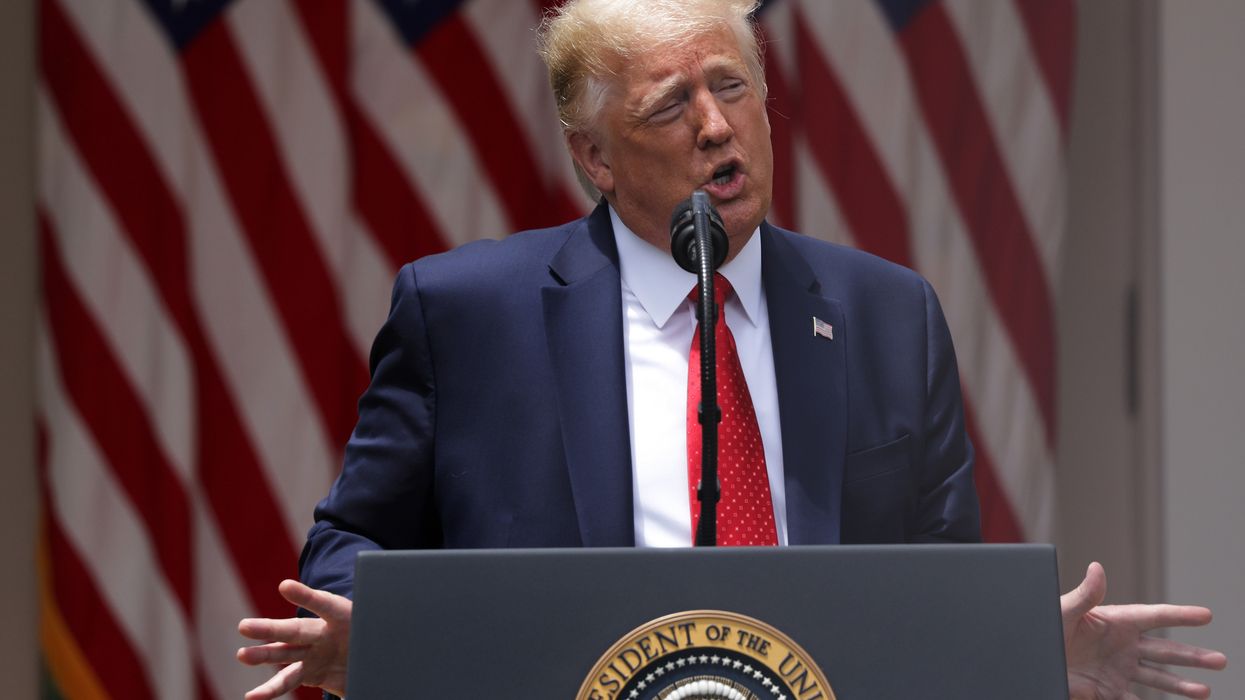Aftergut, a former federal prosecutor, is of counsel to Lawyers Defending American Democracy.
The rule of law, including the media’s right to speak freely for us and criticize our leaders, is at stake this election. The risk comes from Donald Trump, the candidate whose brand has become revenge and retaliation against anyone who opposes him.
A free press is vital to a free people. As Thomas Jefferson wrote in a 1786 letter to James Currie, his daughter’s physician: “Our liberty depends on the freedom of the press, and that cannot be limited without being lost.”
Why? Because ordinary Americans are busy with their lives and their survival. So much of the burden of speaking out in an effort to keep the government honest is carried for all of us by journalists. It’s also done, of course, by those who have the ability to use their voices on social media, in letters to editors and in other forums.
Trump has talked of terminating the Constitution. It includes, of course, the First Amendment’s protections for individuals’ speech and for the press. He’s threatened to investigate MSNBC, the cable news outlet that criticizes him regularly. Trump, mimicking Soviet dictator Josef Stalin’s catchwords for those he slated for elimination, called the network an “ enemy of the people.”
On June 5, Trump told Fox News that he “would have ‘every right’ to go after his adversaries.” The next night, it happened again when Dr. Phil suggested to Trump that if re-elected, “ you don’t have time to get even.” Trump agreed to disagree: “[R]evenge does take time. ... And sometimes revenge can be justified, Phil. I have to be honest.”
History, Yale professor Jason Stanley has noted, is riddled with moments when the people, to their eternal regret, have disbelieved the threats of would-be authoritarians. “Believe what they say,” Stanley told The Associated Press. Trump “is literally telling you he’s going to use the apparatus of the state to target his political opponents.”
Indeed the former president has promised, if re-elected, to weaponize the Justice Department against his enemies, including President Joe Biden. That threat is built on his conspiracy theory that Trump’s May 30 conviction on all 34 felony counts was Biden’s doing.
Nonsense, experts have answered. History professor Allan Lichtman told USA Today’s fact-checkers that “[t]here is not a shred of evidence that Biden has anything to do with this prosecution.” Law professor and former prosecutor Kimberly Wehle called Trump’s attempt to blame Biden for a local district attorney’s decision making “obviously, blatantly false.”
That’s never stopped Trump from trying to intimidate his enemies. “If you come after me,” he famously said, “I will come after you.” If re-elected, he says, he will have members of the 117th Congress’s Jan. 6 committee indicted. The televised summer 2022 hearings, which informed the American people about Trump’s role in the Jan. 6, 2021 insurrection, led up to MAGA underperformance in competitive midterm races.
But that was far from the end of the story. Trump has used the support of enablers to claw back. Most recently, following Trump’s conviction in New York, it quickly became de rigueur for Trump’s enablers to express blood thirst for prosecuting Democrats in retribution.
As The New York Times wrote, “What is different now is the range of Republicans who are saying [that like-kind] retaliation is necessary.” Barbara McQuade, the former U.S. attorney for the Eastern District of Michigan, responded sharply:
As all Americans should know, vengeance is an improper motive in our criminal justice system. Prosecution based on politics would distort the very concept of justice.
There are at least two obvious problems with the MAGA right’s “fight fire with fire” mentality. First, Trump’s conviction was of his own making, a long overdue reckoning with the rule of law after a lifetime of rule breaking. A jury of 12 ordinary citizens found him guilty of criminally covering up his corruption of the 2016 election.
Second, first responders don’t fight fire with fire; they use water. More application of the law is in order, not less. Even so, these enablers are normalizing lawlessness, including political prosecutions in the future and threats to the freedom of the press.
It is up to common-sense Americans to answer. Our ballots are our power. Preserving our rights to a free press and avoiding government by retribution will depend on getting out to vote in force this November. Vengeance may be Trump’s, but liberty is ours to keep.




















Trump & Hegseth gave Mark Kelly a huge 2028 gift